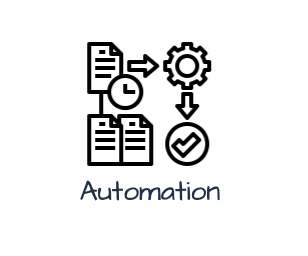A DevOps Mindset: Key Components for Success in Software Development
Introduction
Understanding the DevOps Mindset
As a DevOps Engineer, you understand the importance of delivering high-quality software quickly and efficiently. But have you ever considered the mindset that drives this success? In this article, we'll dive into the key components of a DevOps mindset and why they are essential for the success of DevOps.
1. Continuous Learning
Why Continuous Learning is Critical
One of the hallmarks of a DevOps mindset is a commitment to continuous learning. DevOps Engineers are always looking for ways to improve the software development process, and we are not afraid to try new techniques and technologies. This helps DevOps teams stay ahead of the curve and deliver better results to customers.
Continuous Learning as a Journey
Think of continuous learning as a never-ending journey. With each new project, DevOps Engineers have the opportunity to learn something new and apply that knowledge to future projects. This helps DevOps teams build a wealth of experience and knowledge over time, which they can use to solve the most complex problems.
2. Automation
The Importance of Automation
Automation is a critical component of a DevOps mindset. DevOps Engineers understand the importance of automating repetitive tasks, such as testing and deployment, to work faster and more efficiently. This helps DevOps teams reduce errors and increase the speed of delivery.
Automation as a Tool
Think of automation as a tool that helps DevOps Engineers get more done in less time. With automation, DevOps Engineers can focus on the tasks that require their expertise, such as writing code and designing systems, while the computer handles the routine tasks. This helps DevOps teams work more effectively and deliver better results to customers.
3. Embracing Failure
Understanding Failure as an Opportunity
A DevOps mindset embraces failure as an opportunity for learning and improvement. DevOps Engineers understand that failure is a natural part of the software development process and that it can lead to better results in the long run. This helps DevOps teams learn from their mistakes and continuously improve the software development process.
Failure as a Teacher
Think of failure as a teacher. With each failure, DevOps Engineers have the opportunity to learn something new and apply that knowledge to future projects. This helps DevOps teams build resilience and avoid the same mistakes in the future.
4. Collaboration
The Importance of Collaboration
Collaboration is a cornerstone of a DevOps mindset. DevOps Engineers work closely with development and operations teams to ensure that everyone is on the same page and working towards a common goal. This helps DevOps teams deliver high-quality software faster and more efficiently.
Collaboration as a Team Sport
Think of collaboration as a team sport. DevOps Engineers work together with development and operations teams, sharing knowledge and expertise to achieve a common goal. This helps DevOps teams build trust and create a culture of teamwork and mutual respect.
5. Taking Ownership
The Value of Taking Ownership
Taking ownership is a key component of a DevOps mindset. DevOps Engineers take responsibility for their work and are committed to delivering high-quality software to customers. This helps DevOps teams build trust and credibility with customers and stakeholders.
Taking Ownership as a Personal Commitment
Think of taking ownership as a personal commitment. DevOps Engineers take pride in their work and are committed to delivering the best possible results to customers. This helps DevOps teams build a culture of accountability and responsibility, leading to better results and more satisfied customers.
6. Customer Focus
The Priority of the CustomerFocusing on the Customer ExperiencePutting the Customer First
In a DevOps mindset, customer focus is a top priority. DevOps Engineers understand that their work ultimately impacts the customer experience, and they make it a point to put the customer first in everything they do. By focusing on the customer experience and ensuring that their work meets customer needs, DevOps Engineers are able to deliver high-quality software that exceeds customer expectations. Whether it's through gathering customer feedback, iterating on product design, or ensuring that software meets customer requirements, DevOps Engineers are always putting the customer first.
Conclusion
Bringing it All Together
In conclusion, a DevOps mindset is built on continuous learning, automation, embracing failure, collaboration, taking ownership, and customer focus. These key components help DevOps Engineers deliver high-quality software quickly and efficiently, leading to better results and more satisfied customers.
Embracing the DevOps Mindset
Embracing the DevOps mindset is essential for success as a DevOps Engineer. By focusing on continuous learning, automation, embracing failure, collaboration, taking ownership, and customer focus, DevOps Engineers can deliver better results and build a culture of teamwork, trust, and mutual respect.








